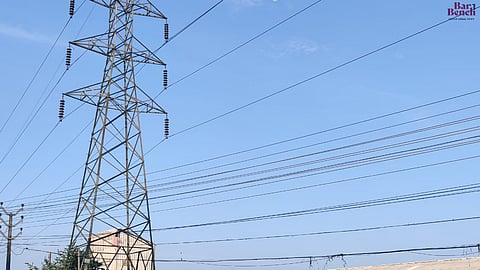
- Latest Legal News
- News
- Dealstreet
- Viewpoint
- Columns
- Interviews
- Law School
- Legal Jobs
- हिंदी
- ಕನ್ನಡ

The Supreme Court on Monday held that State Electricity Regulatory Commissions can examine petitions filed by persons who are not consumers if the subject matter involves issues of public interest [Torrent Power v. UP Electricity Regulatory Commission].
The judgment was delivered by a Bench of Justices JB Pardiwala and Manoj Misra in an appeal filed by Torrent Power Limited against an order of the Appellate Tribunal for Electricity (APTEL).
The petition before the Uttar Pradesh Electricity Regulatory Commission (UPERC) had been filed in 2012 by a private individual seeking investigation into a distribution franchisee agreement between Torrent Power and Dakshinanchal Vidyut Vitran Nigam Ltd for the Agra urban area.
Torrent had objected to the maintainability of the petition, arguing that only a consumer could approach the Commission under the Electricity Act, 2003. This objection was rejected by both the UPERC and the APTEL.
The Supreme Court upheld the Commission’s jurisdiction.
“The jurisdiction under Sections 128 and 129 can be exercised by the State Commission suo motu or based on credible material placed before it by any person, even a non-consumer, if the subject matter impacts the regulatory framework or affects public interest,” the top court said
The Court clarified that the nature of powers under Sections 128 and 129 of the Electricity Act, 2003 is inquisitorial and regulatory, not adjudicatory.
The Bench also rejected the argument that the distribution franchisee agreement was purely a contractual arrangement insulated from regulatory oversight.
“The franchisee model is recognised under the Electricity Act. Though the licensee remains responsible, the conduct of the franchisee affects supply efficiency, billing, and tariff impact. The Commission cannot be ousted from examining such effects,” the Court ruled.
It further held that the UPERC was within its rights to review the performance of the franchisee and order a fact-finding inquiry through an expert committee.
It noted that the petitioner had only invited the Commission to exercise its regulatory oversight and had not sought any private relief.
“The proceedings under Sections 128 and 129 are not adversarial. These are statutory powers meant to protect larger consumer interest. Anyone who brings relevant information to the Commission performs a public function,” the Court said.
Hence, it dismissed the appeal and affirmed the findings of UPERC and APTEL.
Senior Advocate Shyam Divan appeared for Torrent Power.
Advocate Pradeep Misra appeared for the Uttar Pradesh Power Corporation Ltd.
Advocate Sanjay Kapur represented the petitioner before the Commission.
[Read Judgment]